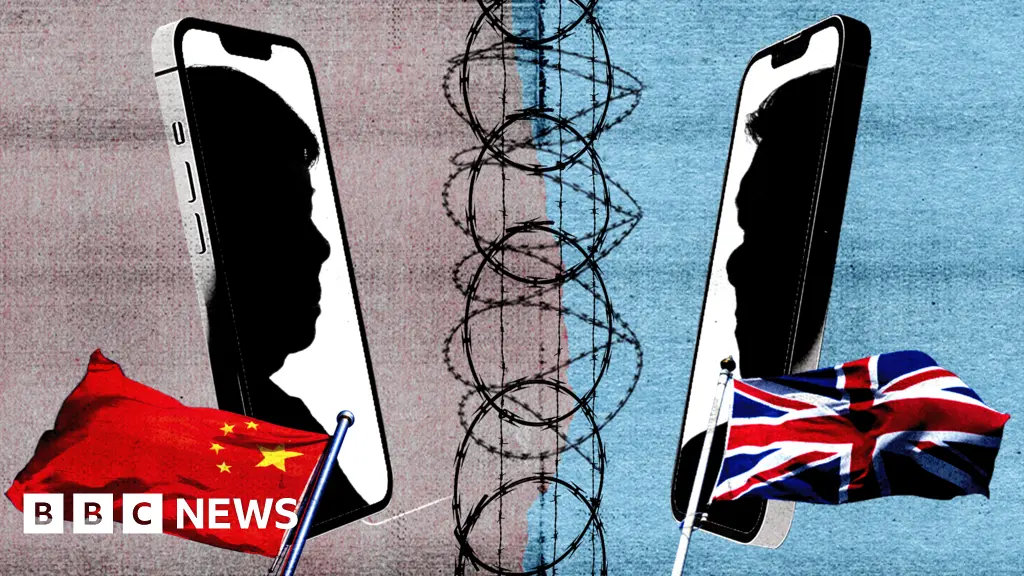- cross-posted to:
- [email protected]
- [email protected]
- [email protected]
- globalnews
- cross-posted to:
- [email protected]
- [email protected]
- [email protected]
- globalnews
cross-posted from: https://lemmy.zip/post/863209
Archived version: https://archive.ph/5Ok1c
Archived version: https://web.archive.org/web/20230731013125/https://www.bbc.co.uk/news/world-66337328



Such fierce condescension and yet you’re the one pushing a children’s story. All these hundreds and thousands of representatives, all the millions of Party members, are just puppets under the Bad Guy’s control. There was no violence to install him, the existing government put him there (since I assume you don’t endorse Chinese elections) and then he played an Uno Reverse and now they are all an extension of him, with all of Chinese politics then becoming merely being a matter of how much people chaff under the collars and fetters he fixes to them. When politicians fight each other? When journalists fire back and forth in the papers? When policy goes one way and then pivots? It’s all just a Potemkin Village with a few hundred million people as the staff.
So no, “someone like me” cannot understand how such a thing could exist outside of a children’s cartoon or a similar sort of story told to an audience that is very much suspending its disbelief.
How in went way is that a children’s story. It’s incredibly easy to understand like a children’s story but is very real, so real you can see it happening in real time. Your idea of China is more like a children’s fairytale rather than the reality it currently is.
I do not support Chinese elections, same way I do not support Russian or North Korean elections. These are also similar to children’s stories.
On your next point, politicians can argue all they want but in the end they will fall in line. Similar to journalists, who may I remind you are often targeted as political prisoners to be sent to reeducation camps. Also, yes, policy changes, people change their minds or gain retrospection on what doesn’t work and pivot, it happens often. For example, China’s Great Leap Forward, which really lead to mass starvation and steel barely useable. Then Deng Xiaoping and Liu Shaoqi reversed these policies and ended the great Chinese famine. Then Mao changing his mind again and having both of them thrown into reeducation camps, Shaoqi would die.
Your “no u” line about how actually I am telling children’s stories doesn’t work as well as you think it does. The crux of my case is that these states aren’t monoliths and potemkin villages but actually have complex internal politics where people of varying viewpoints are able to openly disagree and protest, as is observably true in these countries! Not everyone in the Russian legislature supports the war, and they generally did okay with this position. There are all sorts of left/right debates in China among various politicians and journalists and so on. To call this kabuki theater or totally inconsequential without any actual evidence is silly.
Also your timeline is bad. The Great Famine ended circa '61 and the Cultural Revolution began in '66. The Cultural Revolution certainly had its issues, but it didn’t cause a famine. Deng did end the Cultural Revolution, sort of, but only after Mao’s death and the purging of the Gang of Four (prior to Deng’s re-ascent).
As an aside, I don’t think Deng was ever imprisoned in connection to the Cultural Revolution, though he was half-purged and assigned to menial duties in one case and basically paid leave in another. It’s quite interesting how pissed Mao and his clique were at Deng and yet they held their hand, relatively speaking. Wasn’t it supposed to be a death sentence to oppose Mao, as the liberals tell it? Of course, Mao took pride in trying to rehabilitate people (even the last Chinese Emperor and captured Japanese soldiers!), so he would in almost all cases resist having someone killed or left to rot in prison.
There’s a wild bias in western media in trying to make a Khrushchev out of Deng, but Deng himself vociferously refuted those comparisons while in office, calling Khrushchev a fool, a traitor, and so on, and saying that being compared to Khrushchev was an insult (which is true).